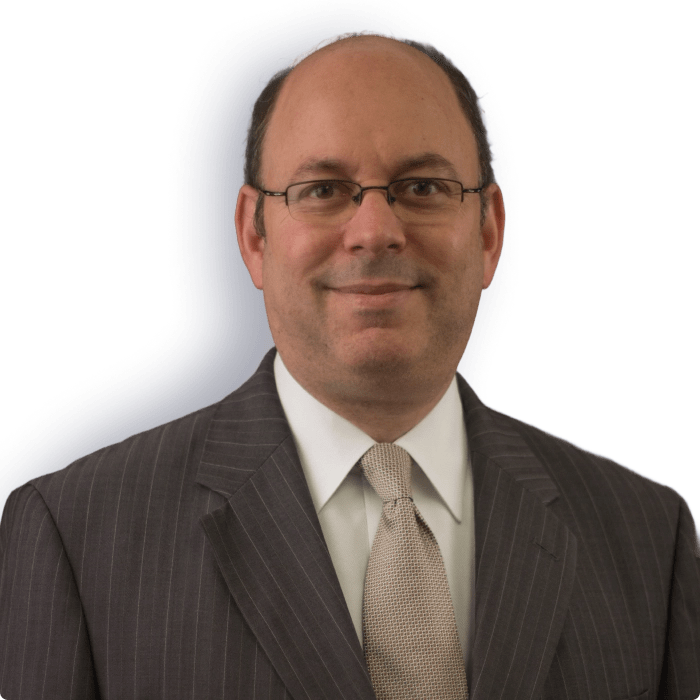
Fred D. Zemel
Partner
201-896-7065 fzemel@sh-law.comFirm Insights
Author: Fred D. Zemel
Date: June 12, 2013

Partner
201-896-7065 fzemel@sh-law.comAs patent infringement battles rage between technology giants like Apple, Google, Oracle and Samsung, the debate continues about the impact of the litigation on innovation. Many also question whether the suits reflect weaknesses in the U.S. patent system.
David Kappos, the former Director of the U.S. Patent and Trademark Office (USPTO), recently addressed the so-called “patent wars” impacting the software industry in an article published in the Stanford Technology Law Review. His perspective is interesting, given that he left his post at the USPTO only a few months ago.
In essence, Kappos argues that the smart phone patent wars are not about low quality software patents or an ineffective patent system. As he explains in the article, “The real issue is the historical tension between the necessary long-term incentives that form the basis for the patent system, versus the desire of consumers to have products and services today at the lowest prices possible.”
Kappos first dispels the notion that the USPTO’s process for evaluating software patents is broken. He points to a USPTO study that found that in over 80 percent of the smartphone lawsuits, the courts have construed the software patents at issue as valid, which he notes is “a far cry from the dire declarations.”
Kappos also argues that software patent applications are getting the same rigorous review by examiners as other technologies. He cites that allowances for software applications were correctly issued 96.8% of the time and for non-software applications 96.5% of the time. Similarly, final rejections for software applications were correctly issued 93.6% of the time and for non-software applications 93.5% of the time.
Finally, Kappos highlights that many problems with the patent system have already been fixed under the America Invents Act. He specifically mentions the new options available to challenge the validity of software patents, including post-grant review, inter partes review, and business method patents review.
“The USPTO itself, in partnership with its user community, has already implemented a series of steps to improve patent quality and is diligently working on the remaining challenges facing software patenting,” he writes.
If you have any questions about this article or would like to discuss the legal issues involved, please contact me, Fred Zemel, or the Scarinci Hollenbeck attorney with whom you work.
No Aspect of the advertisement has been approved by the Supreme Court. Results may vary depending on your particular facts and legal circumstances.

Compliance programs are no longer judged by how they look on paper, but by how they function in the real world. Compliance monitoring is the ongoing process of reviewing, testing, and evaluating whether policies, procedures, and controls are being followed—and whether they are actually working. What Is Compliance Monitoring? In today’s heightened regulatory environment, compliance […]
Author: Dan Brecher

New Jersey personal guaranty liability is a critical issue for business owners who regularly sign contracts on behalf of their companies. A recent New Jersey Supreme Court decision provides valuable guidance on when a business owner can be held personally responsible for a company’s debt. Under the Court’s decision in Extech Building Materials, Inc. v. […]
Author: Charles H. Friedrich

Commercial real estate trends in 2026 are being shaped by shifting economic conditions, technological innovation, and evolving tenant demands. As the market adjusts to changing interest rates, capital flows, and workplace models, investors, owners, tenants, and developers must understand how these trends are influencing opportunities and risk in the year ahead. Overall Outlook for Commercial […]
Author: Michael J. Willner

Part 2 – Tips Excluded from Income Certain employees and independent contractors may be eligible to deduct tips from their income for tax years 2025 through 2028 under provisions included in the One Big Beautiful Bill. The deduction is capped at $25,000 per year and begins to phase out at $150,000 of modified adjusted gross […]
Author: Scott H. Novak

Part 1 – Overtime Pay and Income Tax Treatment Overview This Firm Insights post summarizes one provision of the “One Big Beautiful Bill” related to the tax treatment of overtime compensation and related employer wage reporting obligations. Overtime Pay and Employee Tax Treatment The Fair Labor Standards Act (FLSA) generally requires that overtime be paid […]
Author: Scott H. Novak

In 2025, New York enacted one of the most consequential updates to its consumer protection framework in decades. The Fostering Affordability and Integrity through Reasonable Business Practices Act (FAIR Act) significantly expands the scope and strength of New York’s long-standing consumer protection statute, General Business Law § 349, and alters the compliance landscape for New York […]
Author: Dan Brecher
No Aspect of the advertisement has been approved by the Supreme Court. Results may vary depending on your particular facts and legal circumstances.
Consider subscribing to our Firm Insights mailing list by clicking the button below so you can keep up to date with the firm`s latest articles covering various legal topics.
Stay informed and inspired with the latest updates, insights, and events from Scarinci Hollenbeck. Our resource library provides valuable content across a range of categories to keep you connected and ahead of the curve.
Let`s get in touch!
Sign up to get the latest from the Scarinci Hollenbeck, LLC attorneys!